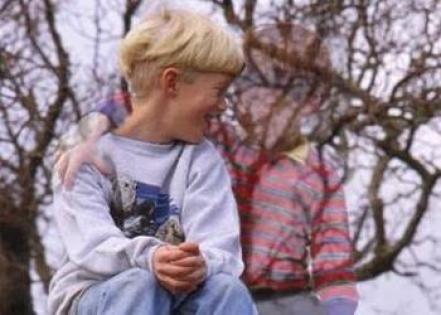There is no harm in a child having an imaginary friend according to psychologist, Bronwyn Charlton who has a doctorate in developmental psychology from Columbia University.
“Research shows that having an imaginary friend is linked to heightened creativity later in life as well as strong verbal skills and a good understanding of social interactions,” says Dr Charlton.
“Pretend play gives children an opportunity to explore the complexities of the world in a safe, imaginary environment.”
She says imaginary friends serve many important functions.
They serve as confidants
“All children have secrets and want privacy at times. Imaginary friends can be wonderful secret keepers!”
They serve as great companions
“Imaginary friends can be great playmates.”
They are great for moral development
“Your child can blame her own misbehaviour on her imaginary friend. By doing so, your child is beginning to distinguish right from wrong but she isn’t yet ready to assume full responsibility so she blames her imaginary friend.”
For example, ‘Felicity ate the rest of the packet of biscuits, mum. I only had three.’
They can give a glimpse into your child’s internal world
“You will often hear your child give advice to her imaginary friend that she’s heard from you, your partner or others such as siblings or teachers.”
For example, ‘Don’t worry Felicity, I’m sure everything will be okay in the end.’
Dr Charlton says children can have an imaginary friend for a while – sometimes as old as 7 years of age.
“Don’t worry. As children mature, and gain the social, cognitive and emotional skills to navigate what they see as their complex world, they will eventually come to the realisation that their friends are ‘just pretend’.”
Dr Charlton has three tips for parents who are faced with an imaginary friend.
1. Treat your child’s imaginary friends with respect
If your child asks you to move out of the way to make room, oblige your child and the friend if you can reasonably do so.
2. Follow your child’s lead when joining in on her pretend play
Be careful not to take over or add too much. This is an opportunity for your child to make up stories and to learn by exploring her own thoughts and feelings.
3. If your child blames her imaginary friend for her misbehaviour or mistake, use it as a teaching opportunity
For example, if your daughter’s imaginary friend, Felicity, spilled the milk, you say: ‘That’s okay, mistakes happen, but let’s help Felicity clean up the mess.’



















__small.png)










